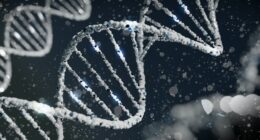Food is a source of energy and nutrients, while nutrients are substances that our bodies need for growth, development, and maintenance. Food is anything that contains nutrients. Nutrients are the substances in food that allow our bodies to function properly.
Food is fuel
The body needs food for energy and to support vital functions. Food is made up of nutrients, which are substances that provide energy or help build tissue. There are six major types of nutrients: carbohydrates, fats, proteins, vitamins, minerals, and water. The macronutrients (carbs, fats, and proteins) provide the majority of the calories (energy) in a person’s diet. Micronutrients (vitamins and minerals) are needed in smaller amounts but are just as important as macronutrients. Water is essential for all bodily functions and must be consumed daily.
When it comes to food versus nutrients, think of it this way: Foods are like a package deal—they come with a combination of all six nutrient types. Nutrients, on the other hand, can be thought of as the “ingredients” that make up foods. Both food and nutrients are necessary for good health.
The six major nutrients
Carbohydrates are the body’s main source of energy. They are found in grains, fruits, vegetables, and dairy products.
Proteins are essential for cell growth and repair. They are found in meat, poultry, fish, beans, eggs and nuts.
Fats are a concentrated source of energy. They are found in oils, butter, margarine, meats and nuts.
Vitamins are needed for metabolism and to maintain healthy tissues. They are found in fruits, vegetables, meat, poultry, fish liver oils and dairy products .
Minerals are needed for metabolism ,bone growth ,and nerve function .They are found in meats ,poultry ,fish ,dairy products ,grains ,fruits and vegetables .
The difference between whole foods and processed foods
When it comes to food, there are two broad categories: whole foods and processed foods. Whole foods are unaltered and contain all of the nutrients that nature intended. Processed foods, on the other hand, have been altered in some way – usually for the purposes of shelf stability, convenience, or taste.
The processing of food can strip away many of the nutrients that are found in whole foods. For example, processing can remove fiber, vitamins, minerals, and antioxidants. What’s left behind is often a nutrient-poor product that’s high in calories and low in nutritional value.
There are some processed foods that are fortified with added nutrients, but these nutrients are often not as bioavailable as those found in whole foods. In other words, your body may not be able to use them as effectively.
Whole foods should make up the majority of your diet because they provide your body with the nutrients it needs to function optimally. When you do eat processed foods, choose those that are minimally processed and make sure they’re a part of a balanced diet.
The importance of a balanced diet
A balanced diet is essential for good health. It helps the body to get the right mix of nutrients, including vitamins and minerals, which are needed for specific tasks.
A healthy diet can help:
Reduce the risk of developing some chronic diseases, such as heart disease, stroke, type 2 diabetes and some cancers
Maintain a healthy weight
Lower blood pressure and cholesterol levels
Improve mental health and well-being
Why are nutrition important to health?
Nutrition is essential for the proper function of all body systems, including the circulatory, respiratory, digestive, and musculoskeletal systems. Nutrition also plays a role in the development and maintenance of healthy bones, muscles, and organs.
Nutrition is important for several reasons:
1) Nutrition provides the building blocks for all body processes. Cells need nutrients in order to grow, reproduce, and repair themselves.
2) Nutrients help regulate body processes. For example, they help control blood pressure and blood sugar levels.
3) Nutrients are needed for energy production. Without adequate nutrition, the body cannot produce enough energy to perform basic functions.
4) Good nutrition is necessary for a strong immune system. Proper nutrition helps the body fight off infection and disease.
5) Nutrition is important for cognitive function. Nutrients are needed for brain development and function throughout life.
6) Proper nutrition is necessary for physical activity. The body needs fuel in order to move; without it, people would be too weak to walk or even stand up.
7) Good nutrition promotes overall health and well-being. It can help prevent chronic diseases such as heart disease, stroke, cancer, and diabetes.
How nutrition is important for mental health
Food and nutrients are both important for mental health. Both can affect mood, energy levels, and cognitive function.
Nutrition is especially important for mental health. Nutritious foods provide the building blocks for a healthy brain and body. They can help to protect against cognitive decline and improve mental well-being.
A healthy diet can also help to reduce the risk of developing mental health problems such as depression and anxiety. Eating a balanced diet that includes plenty of fruits, vegetables, whole grains, and lean protein can help to promote mental health and well-being.
Photo by Tangerine Newt on Unsplash








